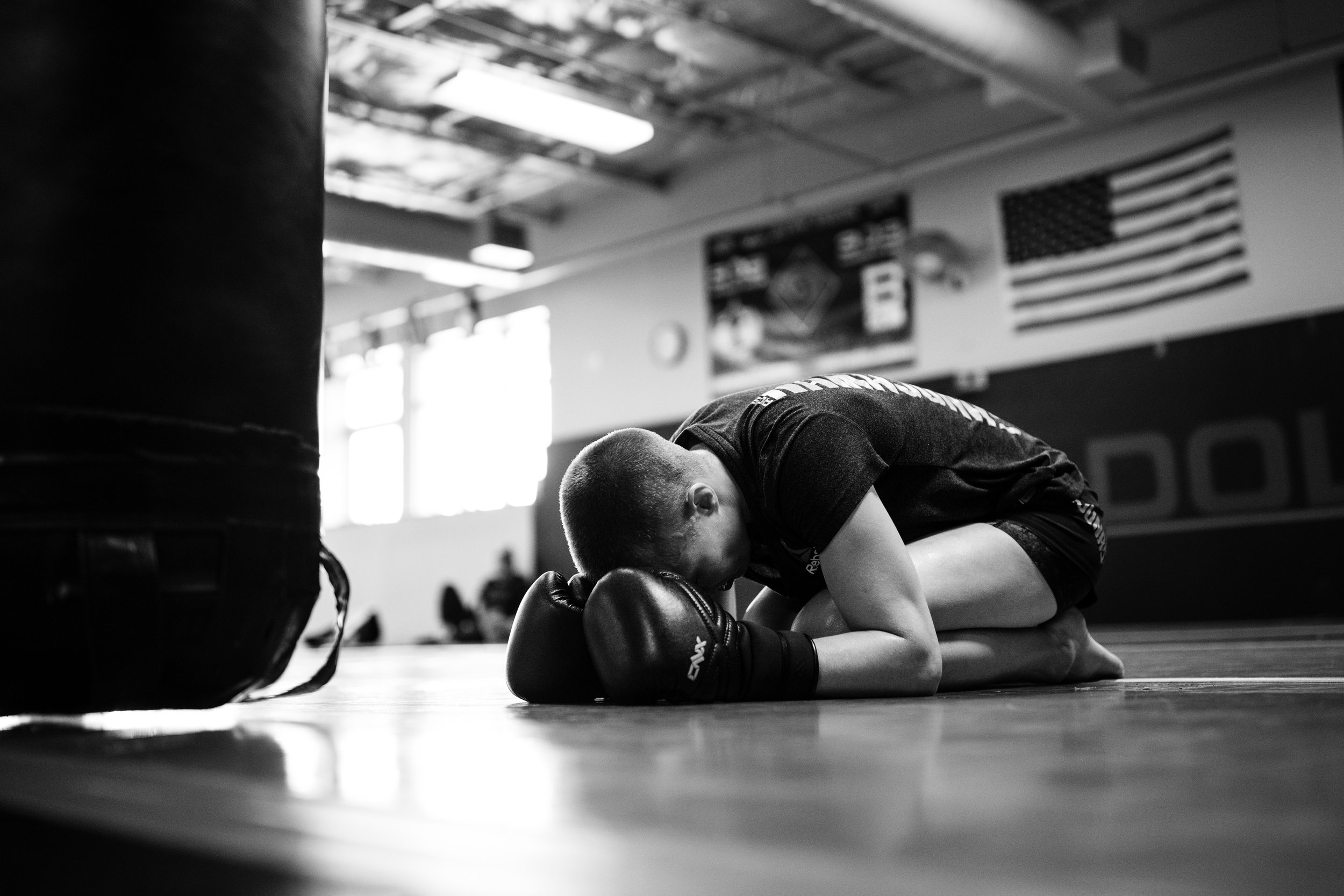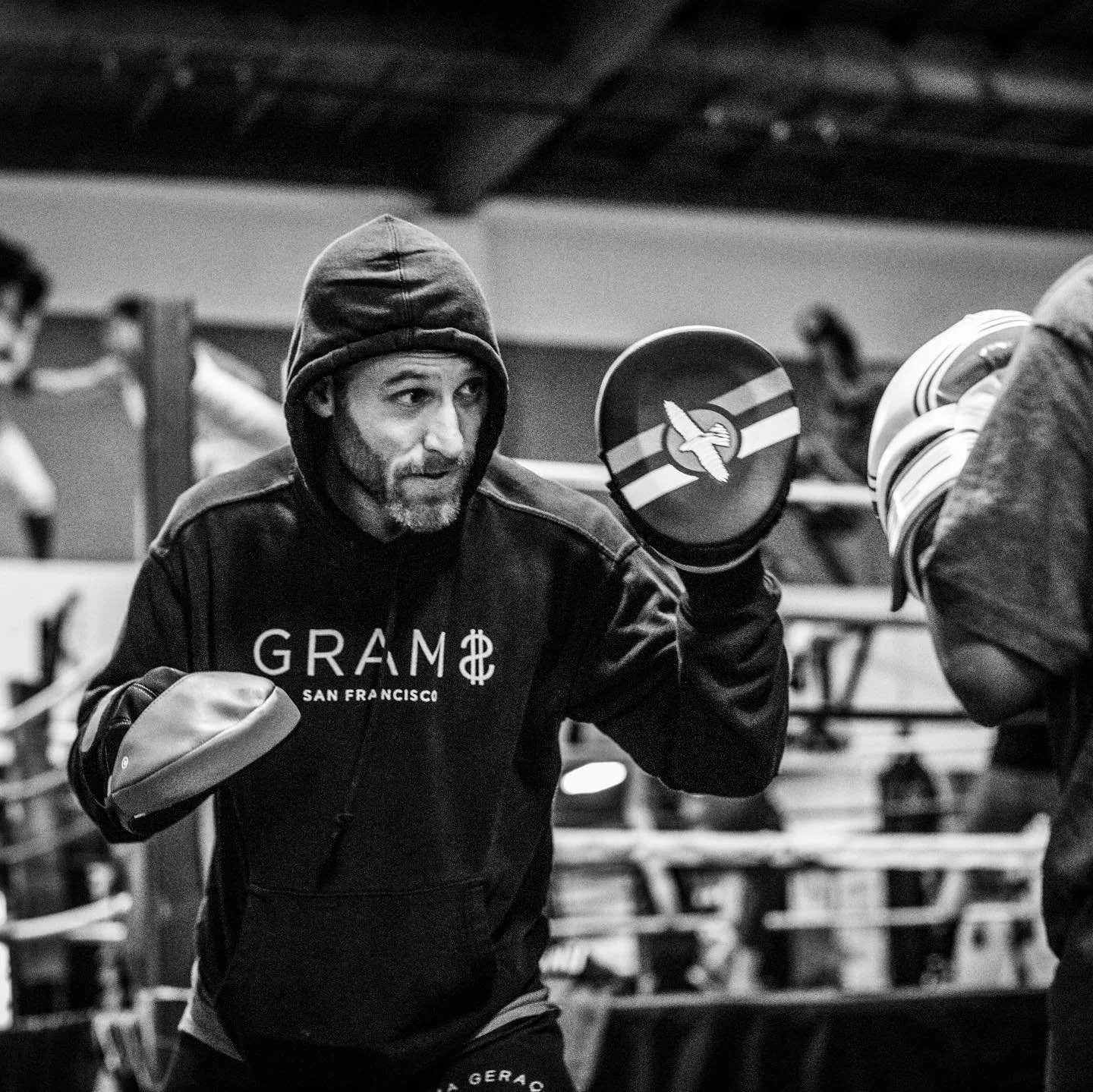
Who We Are
Better Fight was founded by Sacha Feinman in 2022 in order to help select gyms have a greater community impact.
More about us:
Sacha started his martial arts journey in Renzo Gracie's New York City blue basement in 2008. Time spent boxing and competing in MMA followed as he moved about, training in gyms around the country. From 2016 - 2021 he served as the Managing Director of Guardian Gym in Oakland, California, a non-profit fight gym that offered free training in boxing, Muay Thai and JiuJitsu for kids 10-18 by way of after school programming. Under Sacha's management, the gym scaled from a handful of students in its earliest days to over three hundred. Additionally, Sacha launched free social programs at the gym that allowed its youth students to eat meals donated by local restaurants, seek out academic tutoring from volunteer tutors, and sit with a trained and licensed mental health professional to discuss emotional and psychological problems impacting them outside of the gym.
He currently lives in Oakland, California, and is a brown belt in Brazilian JiuJitsu under Caleb Khan at Steadfast Martial Arts.
Our Philosophy
What we believe
When we have a setback, we're said to suffer a blow. If the setback overwhelms us, we're said to be down for the count. When someone supports us through these times, we say, "they're in our corner."
When we want to express something about the struggles we’re experiencing or our capacity to overcome them with dignity and discipline, we draw our metaphors from fighting, combat sports, and martial arts. We do this because they are not just a metaphor for life, but are life at its most raw.
The martial artist, at first glance, is the loneliest person in the world. They fight against their own fatigue, their past, their sorrows, their doubts. They wake up alone and in the dark at 5 AM to run and improve their cardio, and they train tirelessly against an ever refreshing crop of ever younger opponents, fresh bodies looking to unseat them physically from whatever place they've managed to secure for themselves in their struggles. And yet there are few bonds deeper than those formed in a fight gym. Our teammates, our opponents, and our coaches all have embarked on the same path at various times and on various levels. They understand the hairline difference that often separates a happy hand raised in victory from a sad, defeated walk back to the locker room. They were our most important companions during those moments of doubt in practice, when our muscles burned and our mind tried everything in its power to stop the pain and self-sacrifice.
Those who have pursued martial arts understand that training isn’t simply about becoming a better fighter. No martial artist truly believes that they will ever transform into the action movie hero who walks through a troubled world sorting justice from injustice with roundhouse kicks and flying armbars. Martial arts isn't about attaining ideals; it’s about setting them, monitoring them, keeping them ahead of us so that we become a little better each day, whatever our starting point. The work isn't easy, and that's the point. You will have countless opportunities to compare yourself to others, to feel less than in a uniquely physical and raw way, but the martial artist welcomes these stressful experiences as an opportunity to grow and create meaning in an often confusing world.
Inevitably, we do become better. We drill the techniques until they are as natural as walking, we learn balance, we stretch and strengthen. We acquire mental resolve and rid ourselves of the fear of failure, a desire to return to the fray, adhering to the old judo encouragement, "fall 7 times, get up 8."
Before experiencing the glory of competence or even mastery, we come to appreciate life's sometimes rigorous lessons, which are reinforced by the hot shower stinging the glove and mat burns on our face after sparring. Fighting isn't masochism for masochism's sake; it’s the fulfillment of a promise we made to ourselves to grow and become better, to create a body of work worth defending every single day, a body of work that inspires us to, again, step onto the mat or into the ring.
There are moral lessons to be had in training in combat sports, whether we focus on them or not. To name a few: No one gets through without putting in the work, life is humbling, and you're only as good as your last fight. In the case of a true martial artist, these raw physical lessons turn into a way of life accompanied by the calm and gentleness you often observe in masters of their craft. Not everyone who trains embodies these traits. Some people learn the skills but not the lessons that teach how to use them wisely. These techniques can and have been separated from high-minded ideals. The ethical and personal lessons though, for those open to them, are possibly the most that a study of martial arts can offer, and those who ignore them ultimately cheat themselves out of their greatest rewards.
The practice of martial arts does give one an objectively better chance at staying secure in one's person, preventing bullying, and defending one's self and others from attack. The longer one trains, though, the more one realizes how fragile and shifting that advantage is. In life, complete safety is an illusion, and the best martial art for surviving scrapes remains track and field. What martial arts will do, however, is give you the confidence, the balance, and the poise to not panic as your adrenaline courses and chaos erupts around you. The trained martial artist often carries themselves differently, thinks better than to get into a fight in the first place, and stays calm even if their nose is bleeding. Training in martial arts will not prevent bullying or interpersonal conflicts, but it will give one the tools and the knowledge of how and when to use them that makes one less vulnerable, more self-aware, and on the whole more balanced. As the saying goes, "it's better to be a warrior in a garden than a gardener in a war."
Training in combat sports has changed our lives immeasurably for the better, and we wish you the same love, joy, and growth in your own martial arts journey. The entire purpose of this organization is to spread these lessons as far and wide as we can in the hopes of making the world a gentler and more capable place.
A quote from Marcus Aurelius, the stoic philosopher, is a fitting coda: "The art of living is more like wrestling than dancing, insofar as it stands ready against the accidental and the unforeseen, and is not apt to fall."
We wish you nothing but the best. Whether you're a white belt in an ill-fitting gi, or the undisputed champion of the world; we're in your corner.

